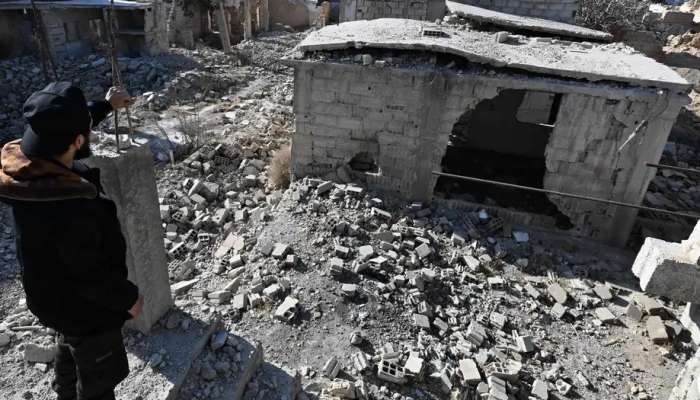
Brussels: European Union foreign ministers were likely to agree on lifting some sanctions on Syria, officials said on Monday ahead of a meeting in Brussels.
Hungary also dropped its veto to the extension of sanctions against Moscow over its invasion of Ukraine, allowing the bloc to renew its wide-ranging sanctions.
French Foreign Minister Jean-Noel Barrot said that the easing of sanctions would apply to the energy, transport and financial sectors.
"Regarding Syria, we are going to decide today to lift, to suspend, certain sanctions that had applied to the energy and transport sectors and to financial institutions that were key to the financial stabilization of the country," Barrot said after arriving at the foreign ministers' meeting.
The Reuters news agency cited EU top diplomat Kaja Kallas as saying that she was hopeful an agreement on easing sanctions could be reached.
Bashar Assad's regime in Syria was toppled by rebel groups on December 8.
The EU has called for Syria's new authorities to implement an "inclusive" political process and respect human rights, including those of Syria's ethnic and religious minority groups.
During Syria's 13-year civil war, Western states drastically restricted exports to the Levantine country and cut off diplomatic and financial ties, citing the Assad regime's abuses.
EU likely to renew Russia sanctions
Barrot also said that a deal had been struck under which Hungary would accept the renewal of sanctions on Russia.
"The sanctions will be renewed," the French foreign minister said. Later on Monday, the bloc's foreign ministers agreed to renew the sanctions on Moscow.
In order for the penalties on Moscow to continue, the EU's 27 member states had to unanimously approve the rollover by January 31.
Budapest had said it wanted to wait for the inauguration of US Donald Trump before agreeing to the continuation of the sanctions regime. Trump had previously called for a negotiated settlement between Kyiv and Moscow to end Russia's invasion.
On Friday, Hungarian Prime Minister Viktor Orban threatened to veto the renewal, calling on the EU to pressure Ukraine to reopen a gas pipeline supplying Hungary and other Central European states.
Ukraine allowed its gas transit agreement with Russia to expire on New Year's Day.
The AFP news agency cited diplomats as saying that the EU had agreed to read out a statement on Hungary's energy security in exchange for Budapest's support for the extension.